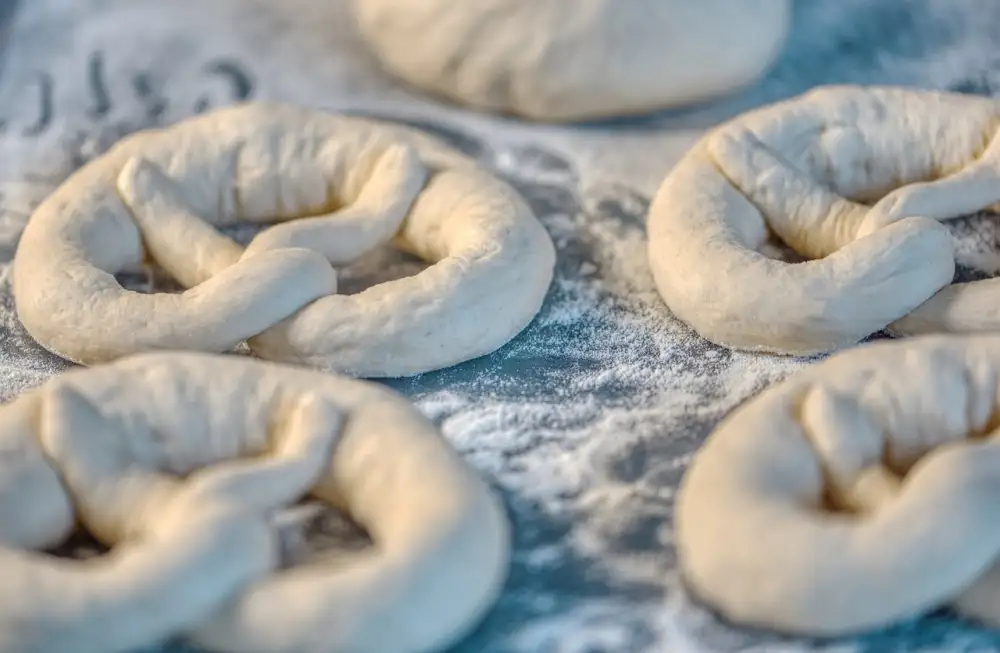Flour Power: How Long Does Flour Last? Your Guide to Freshness in Every Recipe

Flour is a staple ingredient in countless recipes, but its freshness can greatly impact the outcome of your culinary creations. Understanding the shelf life of different types of flour is essential for ensuring the quality and taste of your dishes. From all-purpose to gluten-free options, each type of flour has its own unique lifespan that can be influenced by various factors. By learning about these factors and proper storage techniques, you can maximize the freshness of your flour and elevate the flavors in every meal you prepare.
Factors Affecting Flour Freshness
1. Moisture: Flour absorbs moisture easily, leading to mold growth and spoilage. Store flour in a cool, dry place to prevent moisture absorption.
2. Temperature: High temperatures can cause flour to go rancid quickly. Keep flour away from heat sources like stoves and ovens.
3. Light: Exposure to light can cause flour to deteriorate faster. Store flour in opaque containers or keep it in a dark pantry.
4. Oxygen: Oxidation can affect the quality of flour over time. Seal flour tightly in airtight containers to minimize exposure to oxygen.
5. Contamination: Flour can be contaminated by pests or other food items, leading to spoilage. Keep flour in sealed containers away from potential contaminants like spices or strong-smelling foods.
All-Purpose Flour Shelf Life
All-purpose flour is a staple in most kitchens, known for its versatility in baking and cooking. When stored properly in a cool, dry place away from moisture and heat, all-purpose flour can last up to 1 year. However, it is important to note that the freshness and quality of the flour may start to deteriorate after about 6-8 months. To ensure the best results in your recipes, it is recommended to use all-purpose flour within this time frame for optimal taste and texture.
Whole Wheat Flour Shelf Life
Whole wheat flour has a shorter shelf life compared to all-purpose flour due to its higher oil content. When stored in a cool, dark place, unopened whole wheat flour can last up to 6 months past the printed expiration date. Once opened, it is recommended to use whole wheat flour within 1-3 months for optimal freshness and flavor. To extend its shelf life, consider storing it in an airtight container in the refrigerator or freezer. Keeping whole wheat flour away from heat and light will help maintain its quality and prevent rancidity.
Self-Rising Flour Shelf Life
Self-rising flour typically has a shorter shelf life compared to other types of flour due to the presence of baking powder and salt. When stored properly in a cool, dry place away from heat and light, self-rising flour can last for about 6-8 months. However, it is essential to check the expiration date on the packaging as some brands may vary. To ensure freshness, it's best to use self-rising flour within this timeframe for optimal results in your baking recipes.
Gluten-Free Flour Shelf Life
Gluten-free flour, typically made from alternative grains like rice, corn, or almond, has a shorter shelf life than traditional flours due to its lack of preservatives. On average, gluten-free flour can last up to 6-8 months when stored properly in a cool, dry place away from sunlight and moisture. It's crucial to check the expiration date on the packaging and consider the production date as well. To ensure freshness and optimal performance in recipes, it's recommended to use gluten-free flour within this timeframe.
Proper Storage Tips for Extending Flour Lifespan
Properly storing flour is essential for extending its lifespan and maintaining freshness. To keep your flour at its best quality, store it in an airtight container or resealable bag in a cool, dry place away from direct sunlight and heat sources. The ideal storage temperature for flour is below 75°F (24°C). Avoid storing flour near strong-smelling foods as it can absorb odors easily. Additionally, whole grain flours have a shorter shelf life due to their higher oil content, so consider storing them in the refrigerator or freezer for longer freshness.
Signs of Spoiled Flour
It's essential to be able to recognize when flour has gone bad to prevent ruining your recipes. Spoiled flour may develop a rancid smell, indicating that the oils in the flour have turned. Mold growth is another clear sign of spoilage, appearing as dark spots or discoloration on the flour. Additionally, if you notice any unusual critters such as insects or weevils in your flour, it's time to discard it immediately. Always inspect your flour before using it in any recipe to ensure freshness and quality.
Tips for Testing Flour Freshness
To test the freshness of flour, perform a simple sensory check. Start by smelling the flour - fresh flour should have a mild, sweet aroma. If it smells musty or rancid, it's likely past its prime. Next, visually inspect the flour for any signs of discoloration or tiny insects, which indicate spoilage. Additionally, you can perform a quick taste test by rubbing a small amount between your fingers and tasting it - fresh flour should have a slightly sweet and nutty flavor. If the taste is bitter or stale, it's time to replace the flour in your pantry.
In conclusion, understanding the shelf life of different types of flour is essential for maintaining freshness and quality in your baking. All-purpose flour typically lasts 6-8 months, while whole wheat flour can last up to 4-6 months. Self-rising flour has a shorter lifespan of about 4-6 months, and gluten-free flour should be used within 3-4 months for optimal results. Proper storage in a cool, dry place is crucial for extending the lifespan of flour. Remember to check for signs of spoilage and perform simple tests to ensure your flour is still fresh before using it in your recipes. By following these guidelines, you can harness the "flour power" and create delicious dishes with the freshest ingredients available.
Published: 01. 03. 2024
Category: Recipes



